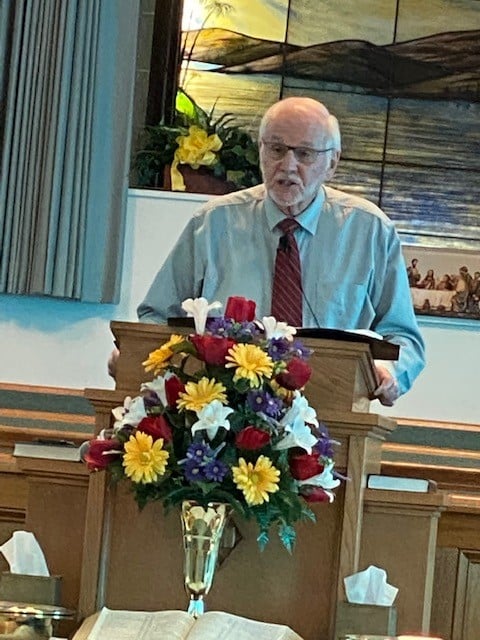One of the Scripture verses that believers lean on for comfort when things become stressful or tragedy strikes is Romans 8:28 where Paul writes, “And we know that all things work together for good to them that love God, to them who are called according to His purpose.” The reason we know this is true is because God is always aware of what goes on with His people and that He has, many times in past history, intervened in the events surrounding them in order to fulfill His word and purpose towards them. We speak of this intervention as the “Providence of God.” You see, God is sovereign. This means He rules over all things. He is also omniscient (all-knowing) and omnipotent (has all power); and because this is who God is, He has all the ability necessary to assure things work out the way He chooses.
“God’s Providence” is simply the teaching that “God watches over and guides all that happens.” The term “providence” itself, according to Richard Philips, is related to God’s “providing” for his people; and there are many examples of this in Scripture. Jesus told His followers in the Sermon on the Mount, “Behold the fowls of the air: for they sow not, neither do they reap, nor gather into barns; yet your heavenly Father feedeth them. Are ye not much better than they”? (Matthew 6:26) The point here obviously is that if God looks after the birds of the air, He will certainly provide sustenance for His people.
There are many who believe that when God gives prophecies in the Bible that He predicts things simply because He knows what is going to happen in the future, which is certainly true. But it is more than that. God proclaims these things because He will do what is necessary to bring these predictions to perfect fulfillment, working through whatever means are needed to bring them about.
For example, God promised through the prophet Micah that “Messiah” would be born in Bethlehem, and since there were two Bethlehems in Israel, He specified it would be the one known also known as Ephratah (Micah 5:2), just south of Jerusalem. Now we all know the story of the angel Gabriel visiting the virgin Mary in Luke 1:26-37 to announce to her that she was about to be with child by the Holy Spirit and would bring forth the One who had been promised for so long, who was coming to “Save His people from their sins” (Matthew 1:21). This was certainly wonderful news. But as the time of her delivery drew near, we must say, “Houston, we have a problem.”
You see, Mary and her husband Joseph lived in Nazareth (94 miles away). Yet God had promised that His birthplace would be in Bethlehem of Judea (Ephratah)? Now we don’t know how much knowledge the young couple had in interpreting the Old Testament, but it didn’t matter. God, through His “providential” working, had already taken care of the matter. He moved on the heart of Caesar Augustus to decree that all Jews return to their ancestral hometown to be registered for taxation, which for Joseph and Mary, just happened to be the town of Bethlehem in Judea. And they made it, arriving there just in time for the baby Jesus to be born. See Luke 2:1-6.
Let’s quickly consider one more example of God’s “providence” in Scripture. God told Abraham in Genesis 15:13-16 that His descendants would be afflicted 400 years in a place outside the promised land. At the end of that time, He would judge that nation that afflicted them and bring them out, and give them the land of the Amorites (Canaan – The Promised Land). Well we know that nation was Egypt, who severely afflicted the children of Israel, just as God had promised.
Now we often wonder why God allows trouble, sometimes intense trouble, to come to His people. In Romans 9:17 it says that God raised up Pharoah and used him for His own purposes. And what were those purposes. First, that God might display His power by destroying this arrogant ruler; and second, to afflict His people so severely that when the time came for them to move to the land of the Amorites, they were more than ready to go. Can you imagine how hard it would have been to get them to leave had they been prospering in Egypt? So in this, God “providentially” worked His plan to bring about His purposes to ultimately bless His chosen people and, in the end, us as well. See Genesis 12:2-3.
For God’s glory and His alone,
Pastor Terry.

